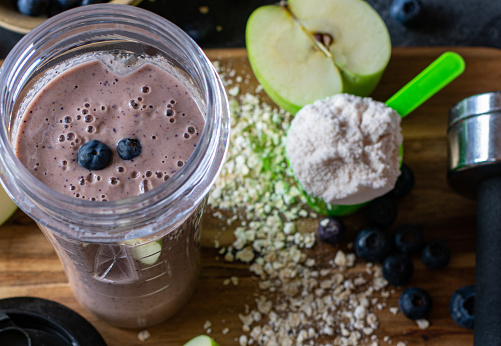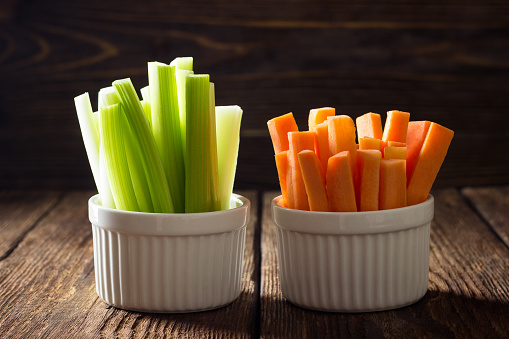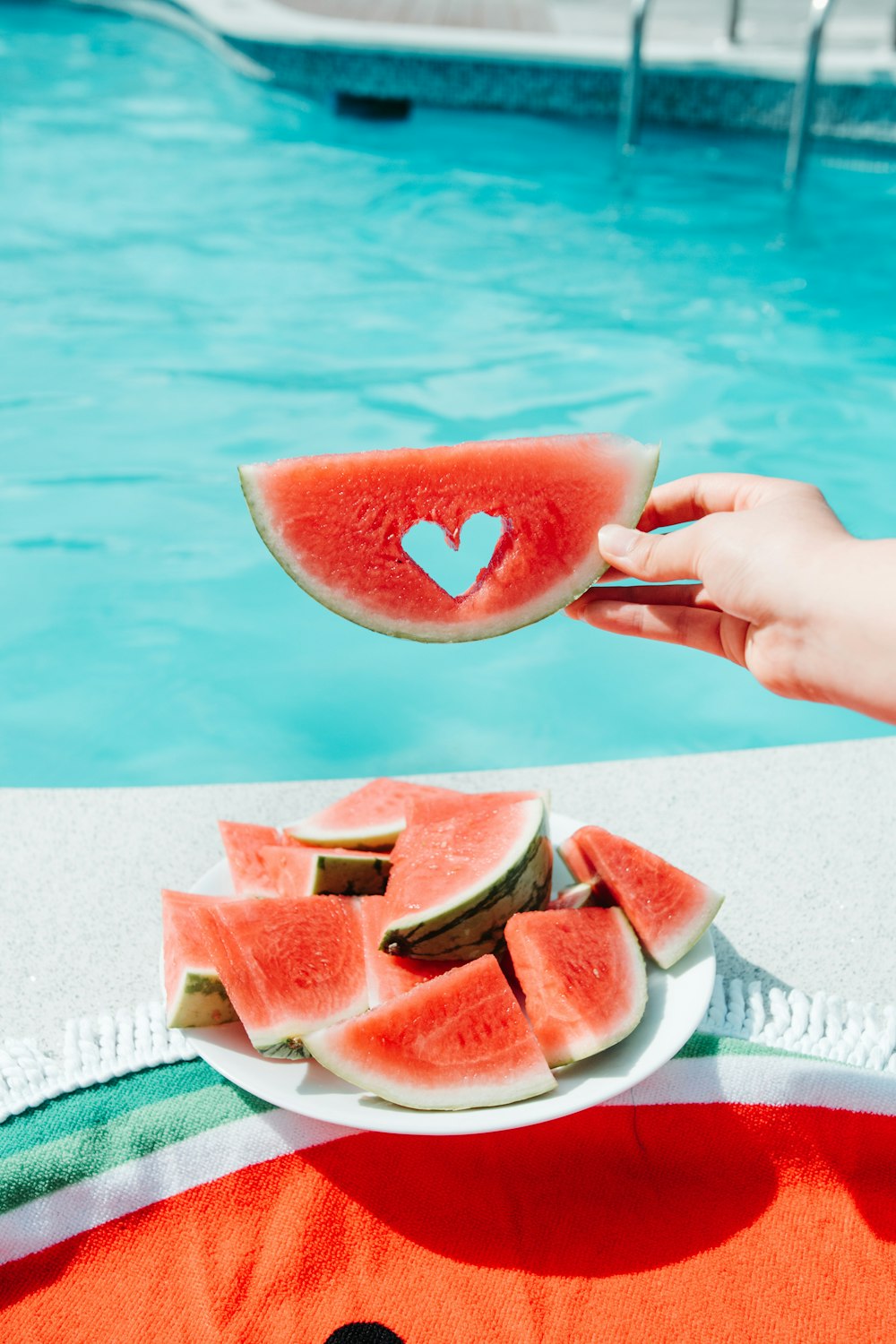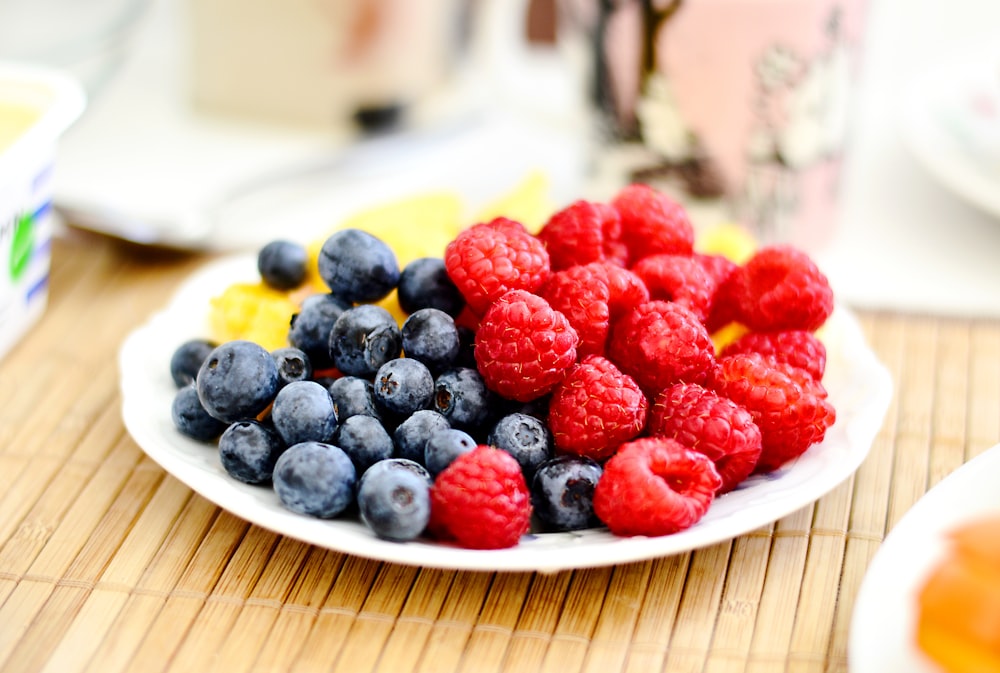
There are a lot of things that go into making a good workout – the right clothes, the right playlist, and of course, the right fuel. What you eat before and after you work out can make or break your performance, so it's important to know what to eat. Here are some tips on pre- and post-workout foods for Canadians.
What to eat before you work out
Before you lace up your shoes and head out for a run, you might want to have something in your stomach. Eating the right foods before working out can help power your performance and keep your energy levels high. Here are some of the best options to choose from.
Fruit, especially banana
Bananas are high in potassium and carbs – two things that your body needs for energy. They're also easy to digest and can keep you feeling full until your next meal.
Yogurt
Yogurt is a great pre-workout snack because it contains carbs and protein, which helps fuel your workout. They will help sustain your energy levels as you work out. It also has probiotics, which help promote healthy gut bacteria.
Peanut butter or nut butter on toast or crackers
Peanuts and other nuts are high in calories and healthy fats, as well as proteins and fibre – making them the perfect pre-workout snack. Plus, they're relatively low in sugar compared to other sweet snacks like cereal bars or granola bars. Get creative with the nut butter by adding bananas or putting it on whole-wheat toast.
Cereal bar, energy bar, granola bar
Cereal bars and energy bars are good options because they're easy to carry around if you're on the go. Just make sure you pick a cereal bar that is lower in sugar (around 10g) and an energy bar that has enough protein (about 12 grams).
Fruit smoothie or protein shake
You can make a healthy, pre-workout smoothie by blending some fruit (like frozen berries) with yogurt, milk (dairy or non-dairy), ice cubes, nuts, nut butter, honey or maple syrup. A milkshake works too!
For added protein*, add some whey powder or plant-based protein powder to your smoothie. If you are craving something sweet like ice cream, try adding half the amount of ice cream to your smoothie so it's not so heavy on the calories. Then have a piece of fruit for dessert – either one you blended in the smoothie or an extra serving of fruit.
Vegetables like carrots and celery
Carrots and celery are both high in carbs and fibre – two things that your body needs for energy – and also low in calories. They're easy to digest, making them a healthy option before you work out.
Carrots are a great source of antioxidants, beta-carotene, and other vitamins and minerals. Antioxidants help protect your body's cells against free radicals, which can damage cells and lead to diseases. Beta-carotene is an antioxidant that can be converted into vitamin A in the body. Vitamin A helps maintain healthy skin, tissues, cells and organs.
Celery is high in fibre, water content, minerals like potassium and phosphorus, as well as B vitamins. B vitamins are important for energy release from carbs and your nervous system function. They also help your body make new cells to replace old ones, which keeps your skin glowing and smooth.
Oatmeal with fresh fruit
This is the perfect pre-workout meal because it slows down the release of sugar into your bloodstream, keeping you feeling fuller longer. Oatmeal is rich in complex carbohydrates for energy during your workout as well as calcium for strong bones and vitamin D for healthy bones, iodine for thyroid function, magnesium for muscles and nerves, as well as sodium to maintain fluid levels in the body.
Black tea and water (with no sugar!)
Caffeine helps fuel short-duration exercises like weight lifting and sprinting by giving you a burst of adrenaline. However, make sure to drink water throughout your workout since caffeine is a diuretic and can make you dehydrated. If you have health concerns, consult with your doctor before drinking caffeine.
Greek yogurt for dairy lovers (about 6 ounces)
Greek yogurt is a great source of protein and carbs, making it the perfect pre-workout snack. It contains probiotics to help promote healthy gut bacteria, which is important when you're working out!
Water to stay hydrated!
Make sure to drink lots of water before and during your workout. Being dehydrated can make you feel light-headed, dizzy, or nauseous – all things that nobody wants to feel while they're working out!
It is not recommended to eat foods high in fat before you work out because it will make you feel bloated. The result? A slowed pace and energy levels that could be lower than usual. Stay away from rich dishes altogether, as they tend to sit in the stomach. If you are going to eat a pre-workout snack, pick something light instead.
What to eat after you work out
You've finally made it through your workout – now what should you eat? There are some great foods that help with recovery and replenish the nutrients that your body loses during exercise. Here are some of them:
Milk (especially chocolate milk!)
There may be nothing better than chocolate milk before or after a workout. It's rich in carbohydrates for energy, protein to promote muscle growth, calcium for strong bones, vitamin D for healthy bones, iodine for thyroid function, potassium for cardiovascular health, magnesium for muscles and nerves, as well as sodium for maintaining fluid levels.
Greek yogurt with fresh fruit and a drizzle of honey
It's exactly what it sounds like – Greek yogurt topped with your favourite fruits, perhaps a drizzle of honey if you need an extra energy boost. Greek yogurt is rich in protein, calcium, and vitamin D.
Smoothie (with protein powder!)
Make a healthy smoothie with your favourite fruits and protein powder for that extra boost after you work out. For added protein, add some whey powder or plant-based protein powder. If you are craving something sweet like ice cream, try adding half the amount of ice cream to make it lighter on calories and have a piece of fruit for dessert – either one you blended in the smoothie or an extra serving of fruit.
Watermelon
If you're looking for a light snack after your workout, watermelon is a perfect choice. It has high water content, so it will help keep you hydrated while supplying essential nutrients such as lycopene (which may have cardiovascular benefits), vitamins A and C, potassium for cardiovascular health, magnesium for muscles and nerves, as well as sodium to maintain fluid levels.
Granola
The granola provides healthy carbs for energy, protein to promote muscle growth, calcium for strong bones, vitamin D for healthy bones, iodine for thyroid function, magnesium for muscles and nerves, as well as sodium to maintain fluid levels.
Mixed berries
Berries are high in antioxidants which help with muscle recovery after a workout. They also contain vitamins C and K to support the immune system, potassium to lower blood pressure, manganese (great for bone health), folate (for cardiovascular health), iron (to promote muscles production), choline (promotes brain health) and fibre!
Bananas
Another good post-workout snack is bananas. Bananas are rich in carbohydrates for energy. If you had one before a workout, you'd have more energy to push yourself afterwards. Bananas are also loaded with potassium for cardiovascular benefits, magnesium for muscles and nerves, as well as sodium to maintain fluid levels.
Some things to keep in mind when eating bananas: they are rich in potassium, so those with kidney problems should avoid them, and they produce gastric acid, which can lead to stomach aches or cramps. Keep this in mind if you experience stomach pains after eating bananas.
The Nutrition Goal
The goal is to maintain high energy levels and provide the body with enough fuel for strength training. Now you know what foods are best to eat before, during, or after your workout!
Hopefully, these tips have given you some ideas on how to keep your pre-workout snack healthy while still giving yourself that post-workout treat. Remember, always consult a doctor about any new diet changes—especially if you have any medical conditions like diabetes or heart disease. But do not be afraid of trying something different every so often--you might just find out it's exactly what your body needs!
Other tips to Make Out the Best of your Workout
So, you've made the commitment to get fit and want to get the most out of it by modifying your pre and post-workout food. That's awesome! But if you want to make sure your workout is as effective as possible, there are a few things you should keep in mind. Here are other tips to help you make the most of your time stretching or exercising and reach your fitness goals.
1. Mix up your routine to avoid boredom
Are you doing the same workout type and intensity day in and day out? Try changing up your routine every now and then. Spend more time on one muscle group or do more reps on another. You can also try a HIIT (High Intensity Interval Training), where you work out at maximum power for short periods of time and give yourself enough rest before repeating it.
High Intensity Interval Training (HIIT) involves alternating between periods of short but intense exercises interspersed with longer recovery times during which you lower the intensity somewhat. This is an effective way to increase your overall fitness level without spending too much time at it! It also helps burn more fat which leads to better results in a shorter amount of time.
2. Correct form is essential
One common mistake people make when they lift weights is focusing too much on lifting more rather than correct form. Your focus should be to prevent injuries while getting the most out of your workout by using the correct form all the time instead of just until you feel like stopping. Use weights that are comfortable to go slowly on some exercises such as bicep curls and squats.
3. Track your progress
Most people do not know how much progress they make when working out, which can be discouraging to them in the future. If you track your progress, you'll see how far you've come and will be able to better plan your workout routine for the future, which will keep things interesting and challenging. For every strength-training session, try using a different weight than last week. And don't forget: it makes no difference whether or not you lose weight after doing cardio because that includes water loss too! What matters is that your actual fat percentage decreases over time.
4. Vary the intensity of your workouts
If you do the same level of intensity for your strength training all the time, you'll soon get bored and not see any results. The body will adapt to certain levels of stress, which makes increasing intensity almost impossible. You don't have to go from doing low reps of weight training one week and then high reps on another week because that can create muscle imbalances and slow down your progress. Instead, try changing your workout routine every few weeks by adding an extra set or two per exercise or switch up the rest periods between exercises for added variety.
5. Try new exercises
Trying new exercises can keep your body challenged and increase the intensity of your workout. It's important not to stick to just one type of exercise because that will lead to stagnation. For example, if you always just do squats, try adding in some lunges or split squats too so you target different muscles groups while still challenging yourself.
6. Take a break if you're feeling burned out.
If you have been working out consistently for several months and are still not seeing results, it might be time to take a break. Your body gets used to the same workouts after a while, which decreases their effectiveness over time.
Take some weeks off by doing other types of exercise or just taking some time to relax to recharge your batteries so you can come back stronger than ever!
7. Hydrate, hydrate, hydrate!
It is easy to overlook to drink enough water and stay hydrated if you work out in the middle of a hot and humid summer. But drinking plenty of water is important because it keeps your blood flowing well, which transports oxygen to all parts of your body, including your muscles. It also helps you lose weight faster by increasing your metabolism and keeping your appetite in check.
8. Consider taking supplements
Supplements like protein powder and pre-workout can be helpful to increase your overall workout performance. Eating protein after a workout speeds up the rate at which you rebuild muscles used during your workout, as well as increasing their size over time too. Pre-workout supplements can give you that extra energy you need for those tougher workouts where things feel a bit slow or difficult compared to usual.
Multivitamin supplements are also helpful for those who follow a vegetarian or vegan diet and do not get all the vitamins and minerals one needs from their daily meals.
If you are aged 40 years or above, Applied Science Nutrition's Multivitamin Supplement might be the product you need.
Support your body as it ages gracefully with ASN's Over 40 Multivitamin. This specially formulated vitamin is designed to help you stay healthy and active as you age. Featuring a blend of essential vitamins and minerals, this supplement will help keep your heart, eyes, and immune system functioning properly. So start your day off right with a dose of our Over 40 Multi-Vitamin and feel confident that you're doing everything possible to stay healthy!

ASN Over 40 Multivitamin is designed to help with a variety of common aging issues. It includes vitamins, minerals, and other nutrients that are essential for optimal health as we get older. This product can help support joint health, cognitive function, energy levels, and more!
To help address aging-related problems, it's formulated with science to provide your body B6/B12/Calcium/glucosamine.
Always consult with your family physician before taking any supplements, especially if you're taking prescribed medications or you have other health concerns. Supplements are a powerful ally to your well-being, but remember that you must couple them with a balanced and healthful diet and regular exercise to get the most of their properties.
9. Reward yourself for sticking to your workout plan
Rewarding yourself for sticking to your workout plan and doing so consistently for an extended period of time is very important. It's the same as with anything else in life: if you don't reward yourself for your efforts, you eventually stop trying because there's no point in doing so. That doesn't mean you should buy yourself material things which can be unhealthy but instead find other ways to stay motivated, like taking a break at the spa or watching a movie after a workout which is both non-material ways to reward yourself without getting pulled into the trap of buying useless material items.
10. Sleep is important
Just like if you don't eat well, sleep will have an effect on how good your workout routine turns out. If you stay sleep deprived (less than 7 hours per night), your body won't recover as well, which means less strength and endurance for your next workout session. Be sure that if you stay up late, you also get the proper amount of sleep so that your body can recover and be ready for your next workout session.
11. Exercise with a friend
Exercising with a friend or as part of a group can help you stay motivated and remain consistent with your workout plan. It also helps keep you accountable since others are expecting to see you at the same time and place each day which is great for those days when it feels difficult to get out of bed early in the morning. If you have a significant other, ask them if they'd be interested in going to work out together too!
12. End your workout on a positive note!
It's important during every workout session that you leave feeling pleased from what you've accomplished because it will help motivate you to go to the gym again tomorrow. For example, if your goal is to lose weight, it's important that the last move of your workout be a full body exercise like running or standard push-ups/pull-ups. This will help ensure that you burn more calories after the session has ended, which means more calorie deficit over time; remember, the goal here is long-term results!
13. Resistance training is important.
No matter who you are, we all need strength to be able to perform daily tasks and activities. Age doesn't matter either; everyone can improve their strength with the proper resistance training techniques. If you don't get stronger over time, your body won't function as well, which means less productivity at work and more fatigue at home; nobody wants that! To prevent this from happening, make sure you incorporate resistance training 2-3 times per week in addition to cardiovascular activity.
14. Keep track of what you are eating.
If you don't keep track of what you are eating, it's easy to lose track of how much you're eating, which leads to excess caloric intake and weight gain. If you plan out your meals at least a week in advance, average out their caloric values to make sure that you're staying within a calorie deficit goal for the week, it will be much easier to manage what you eat.
15. Don't obsess over calories if cutting.
It can be tempting to try to track all of your food intake, but it can also become quite tedious after a while, especially when trying to lose fat since it's not as easy as losing water weight from carbs. Instead, do some research on macronutrients and find the range of calories for yourself that will provide optimal results based on your body type and desired level of muscularity/leanness because everyone has different needs even though the goal is all the same.
16. Seek professional advice if needed
If you are still encountering issues related to performing better at the gym, it might be time to seek professional advice from a certified personal trainer who can provide you with feedback and specific workout plans that work well for your fitness goals and also your body type and shape. However, if you want to invest in items like weight sets or running shoes, make sure they are the right size by visiting an offline store to try them on before buying online.
Quick Reminder: Must read!
This guide is supposed to give you guidelines and practical advice to know how and when to take supplements. There might be additional points we haven't mentioned in the article that you'd want to take into account, so don't hesitate to do your own research.
Everyone's different, and there's no point in taking something just because advertisements say it could boost your health. Remember that, after making sure with your doctor that the product won't affect your health, the final decision whether to take a particular supplement is only yours.











